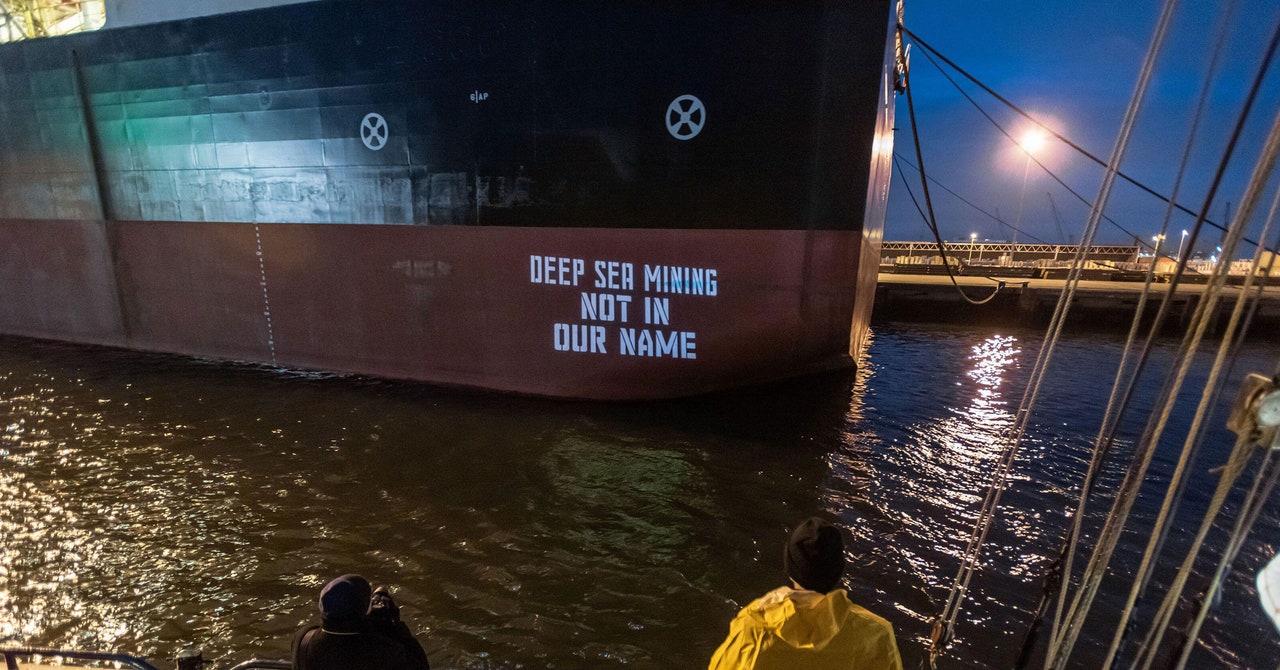Review sản phẩm
“Thay vì khai thác đáy biển, có lẽ mọi người nên tập trung vào việc sửa chữa vật dụng”
Giới thiệu Instead of Mining the Deep Sea, Maybe People Should Just Fix Stuff
Thay vì khai thác biển sâu, có lẽ mọi người nên chỉ cần sửa chữa các vật liệu.
Thay vì khai thác ở biển sâu, có lẽ mọi người nên tập trung vào việc sửa chữa thiết bị hư hỏng. Đặc biệt, việc đánh giá sản phẩm trước khi mua là rất quan trọng. Hãy đến ngay Queen Mobile để trải nghiệm dịch vụ chăm sóc khách hàng chuyên nghiệp và mua sắm sản phẩm chất lượng. #QueenMobile #ĐánhGiáSảnPhẩm #MuaSắmChấtLượng
QUEEN MOBILE chuyên cung cấp điện thoại Iphone, máy tính bảng Ipad, đồng hồ Smartwatch và các phụ kiện APPLE và các giải pháp điện tử và nhà thông minh. Queen Mobile rất hân hạnh được phục vụ quý khách….
_____________________________________________________
Mua #Điện_thoại #iphone #ipad #macbook #samsung #xiaomi #poco #oppo #snapdragon giá tốt, hãy ghé [𝑸𝑼𝑬𝑬𝑵 𝑴𝑶𝑩𝑰𝑳𝑬] ✿ 149 Hòa Bình, phường Hiệp Tân, quận Tân Phú, TP HCM
✿ 402B, Hai Bà Trưng, P Tân Định, Q 1, HCM
✿ 287 đường 3/2 P 10, Q 10, HCM
Hotline (miễn phí) 19003190
Thu cũ đổi mới
Rẻ hơn hoàn tiền
Góp 0%
Thời gian làm việc: 9h – 21h.
KẾT LUẬN
Nội dung của bài viết đề cập đến việc thay vì khai thác đáy biển sâu, người ta nên tập trung vào việc sửa chữa các vấn đề hiện tại trên trái đất. Bài viết đề cập đến những hậu quả tiêu cực của khai thác quá mức và đề xuất một cách tiếp cận khác để bảo vệ môi trường và tài nguyên thiên nhiên. Bằng cách thúc đẩy việc sửa chữa và tái chế, chúng ta có thể làm cho thế giới trở nên tốt đẹp hơn mà không cần phải can thiệp vào những vùng đất chưa được khám phá sâu.
Barron counters that the life in the abyssal zone is less abundant than in an ecosystem like rainforests in Indonesia, where a great deal of nickel mines operate—although scientists discovered 5,000 new species in the CCZ in 2023 alone. He considers that the lesser of two evils.
“At the end of the day, it’s not that easy,” You can’t just say no to something. If you say no to this, you’re saying yes to something else.”
RRRRR
Barron and others make the case that this ecosystem disruption is the only way to access the minerals needed to fuel the clean-tech revolution, and is therefore worth the cost in the long run. But Proctor and the others behind the report aren’t convinced. They say that without fully investing in a circular economy that thinks more carefully about the resources we use, we will continue to burn through the minerals needed for renewable tech the same way we’ve burned through fossil fuels.
“I just had this initial reaction when I heard about deep sea mining,” Proctor says. “Like, ‘Oh, really? You want to strip mine the ocean floor to build electronic devices that manufacturers say we should all throw away?’”
While mining companies may wax poetic about using critical minerals for building clean tech, there’s no guarantee that’s where the minerals will actually wind up. They are also commonly used in much more consumer-facing devices, like phones, laptops, headphones, and those aforementioned disposable vape cartridges. Many of these devices are not designed to be long lasting, or repairable. In many cases, big companies like Apple and Microsoft have actively lobbied to make repairing their devices more difficult, all but guaranteeing more of them will end up in the landfill.
“I spend every day throwing my hands up in frustration by just how much disposable, unfixable, ridiculous electronics are being shoveled on people with active measures to prevent them from being able to reuse them,” Proctor says. “If these are really critical materials, why are they ending up in stuff that we’re told is instantly trash?”
The report aims to position critical minerals in products and e-waste as an “abundant domestic resource.” The way to tap into that is to recommit to the old mantra of reduce, reuse, recycle—with a couple of additions. The report adds the concept of repairing and reimagining products to the list, calling them the five Rs. It calls for making active efforts to extend product lifetimes and invest in “second life” opportunities for tech like solar panels and battery recycling that have reached the end of their useful lifespan. (EV batteries used to be difficult to recycle, but more cutting-edge battery materials can often work just as well as new ones, if you recycle them right.)
Treasures in the Trash
The problem is thinking of these deep sea rocks in the same framework of fossil fuels. What may seem like an abundant resource now is going to feel much more finite later.
“There is a little bit of the irony, right, that we think it’s easier to go out and mine and potentially destroy one of the most mysterious remote wildernesses left on this planet just to get more of the metals we’re throwing in the trash every day,” Lamp says.



